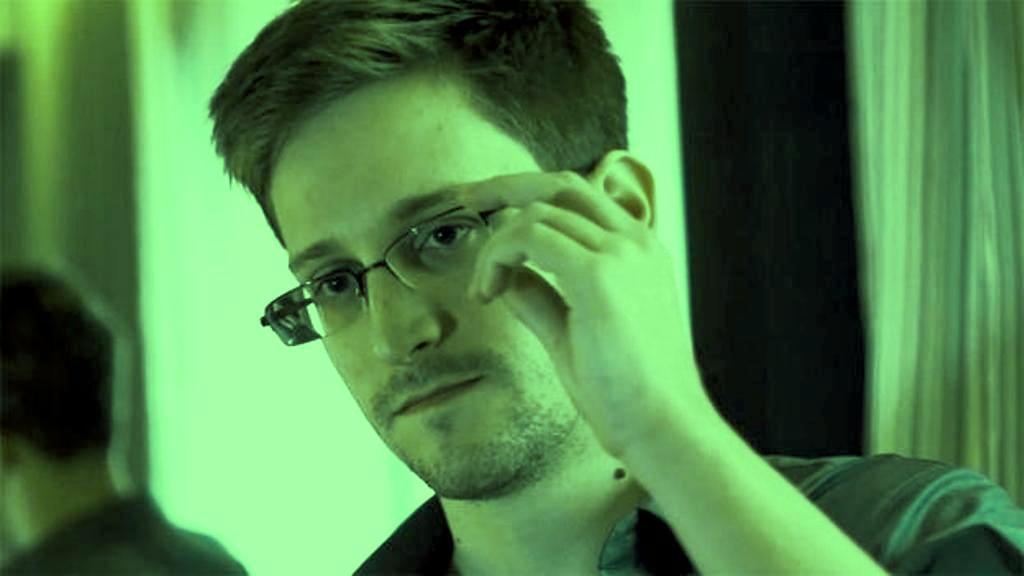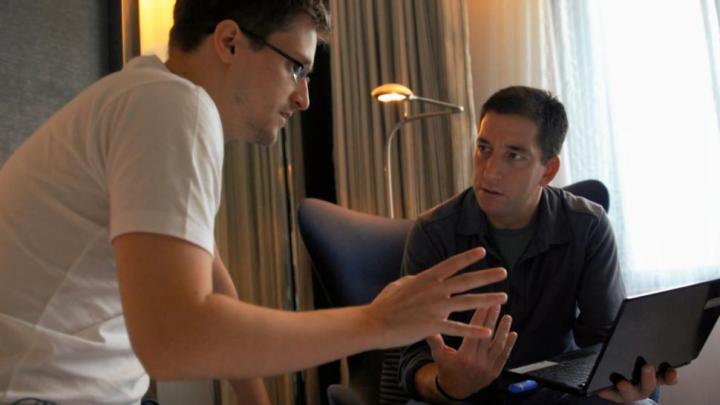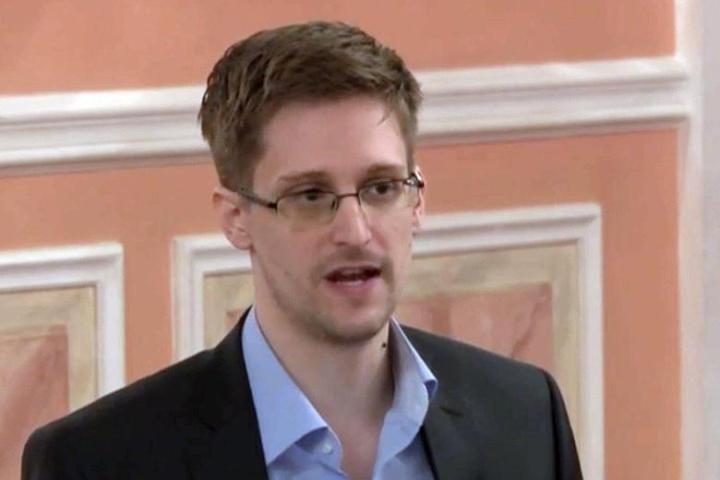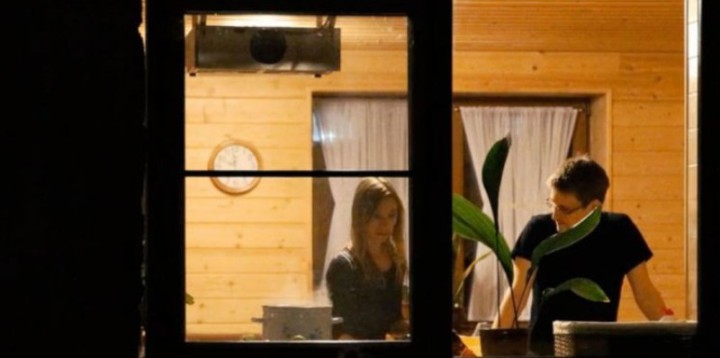I suppose your take on Laura Poitras’ Edward Snowden documentary Citizenfour is going to be influenced by your take on Snowden himself. If — as Poitras clearly does — you consider him a hero and a martyr — no questions asked — you will probably love the film. However, if there are questions about Snowden you’d like answered, this is not the place to look for those answers. Poitras (who seems to view herself as something of a martyr for making the film) is a true believer and her cinema verité-styled documentary is presented in that manner. Early on there are some pretty broad accusations hurled at the viewer, followed by Poitras’ claim “and I can prove this.” If that proof actually was offered in the course of the film, I missed it. (That’s not entirely impossible, given the often unfocused nature of the presentation.) “And I can prove it” seems to settle it.
Citizenfour is not a bad documentary — though personally I found it pretty dry — and there’s nothing wrong with the fact that it’s biased. Show me the activist documentary that isn’t. If you’re a foursquare Snowden supporter, it’s an essential. If you’re just interested in the subject, it’s probably close to one. But it is also a film in danger of falling prey to people confusing the importance of the topic with the importance of the film itself. It’s actually a film that is quite probably more interesting by reading between the lines. Consider — just for starters — Snowden’s stated claims of not wanting to be the story. OK, fine — it is the story that’s important, not Snowden. That’s an admirable idea, but it sits uncomfortably next to him agreeing to being identified and saying to “pin the target to my back” and “nail me to the cross.” The inevitability of his exposure to one side, this is suggestive of a more conflicted self-image than the one we’re being given. Much the same could be said for a too lengthy scene where he carefully — and indecisively — primps before going out into the world for the first time in the film.
The idea of the film is to present the real-life drama of the story as it unfolds. I’ll suspend my natural suspicion of restaging events here and simply look at the pachyderm on the premises. This is a story where we already know the outcome. How much genuine suspense can that generate? Apparently, quite a bit according to a lot of critics who find the whole thing a real nail-biter. Really? I don’t get it. Even if I did, I’d still have issues with a film where the bulk of the running time is Edward Snowden in a Hong Kong hotel room being interviewed. As a break from this, we sometimes get online chats filling the screen or fingers typing. This is simply not the stuff of great cinema.
Is it informative? I suppose so, even if anything new I might have learned is shrouded in charts that are never broken down for the lay viewer. But the film seems more interested in feeding our outrage than enlightening us. (Just wait until the perpetually outraged Oliver Stone turns this into a narrative film.) It’s worth seeing, but I remain unconvinced that it’s as great and important as has been claimed. The topic of the government spying on us is certainly an issue of our time, but I keep coming back to a single question: If this surveillance and its abuse of power is so all-pervasive, why was this movie allowed to be released? Rated R for language.








Gone come Wednesay
Just watched the premiere on HBO definitely one of the best docs this year.
False.
Very false. Why is it supposedly good? Because the topic is supposedly important? That may be true, but this is the unfiltered, unquestioning acceptance of Mr. Snowden as some kind of knight in shining armor — as presented by a True Believer. Moreover, it’s presented by a True Believer who keeps spouting her own paranoid rants — followed by “and I can prove this,” but she never does. After watching her on the Oscars, I’m inclined to think she’s actually unhinged.
Just because she brought a couple of cameras to Snowden’s bean-spilling session doesn’t automatically make it a great film.
It’s as if Poitras made a film about the current coat of paint on your wall. You’ve seen the paint, but she’s going to show you how it dried.
No, but it makes it a fascinating example of how whistleblowing works.
We disagree there.
Was the “I can prove this” a typed message on the screen? Are you sure that wasn’t Snowden and not her because I don’t remember that in the film? You said in the review that we already know the ending, I’m not a political guy and don’t really follow it, but is the story done I’m sure they’re are still fighting this out in court. Has Greenwalds second source ever been revealed?
It’s early in the film and it’s her talking. I don’t think it’s even about Snowden. I don’t follow this story. I got fed up with it long, long ago, but as far as what is in the film, you knew — or should have known — the ending before the movie started.
They’ve been playing this a lot on HBO and the scene in question IS her reading Snowdens initial email saying ‘he can prove this” NOT her.
So what paranoid bullshit is going on in the visuals there? Trust me, I am not watching this again to find out.
Haven’t seen many docs I still need to see The Overnighters, but this was the best one I saw that was released last year.
1. Jodorowsky’s Dune
2. The Hip-hop Fellow
3. Life Itself
4. Finding Vivian Maier
5. Art and Craft
6. The Great Invisible
7. 20,000 Days on Earth
8. The Overnighters
9. Mistaken for Strangers
10. The Unknown Known
I think this and Jodorowsky’s Dune were the only ones I saw from last year.
I saw Particle Fever which I was think was last year, but it was 2013.
It was released in 2014. Why, I will never know. By that I mean why was it released at all?
I forgot one, I did see “20,000 Days On Earth.”